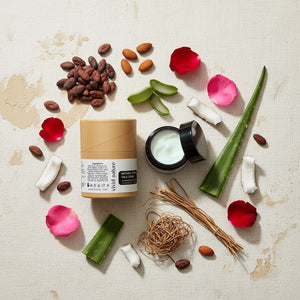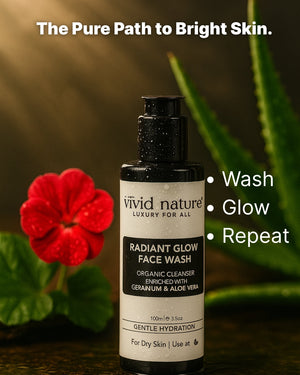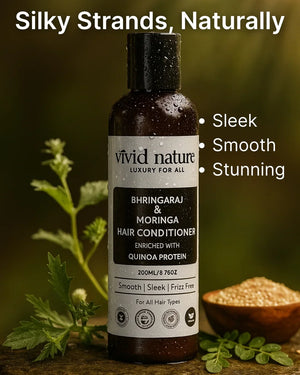From Blemishes to Bliss: The Ultimate Guide to Choosing the Best Soap for Good Skin

Firstly, it's important to understand your skin type. Whether you have dry, oily, or combination skin, there are soaps specifically formulated to address your unique needs. We will dive into the different types of soaps and their benefits for each skin type.
Next, we will explore the ingredients to look for in a soap. From gentle cleansers like aloe vera and chamomile to exfoliating ingredients like charcoal and fruit acids, we will uncover the power of these ingredients in promoting healthy and clear skin.
Finally, we will provide recommendations for the best soaps on the market based on customer reviews and expert opinions. Get ready to say goodbye to blemishes and hello to bliss with our ultimate guide to choosing the best soap for good skin.
Understanding the importance of choosing the right soap for good skin
When it comes to achieving good skin, choosing the right soap is crucial. Soap plays a vital role in cleansing away impurities, dirt, and excess oil from the skin's surface. However, not all soaps are created equal. Some can strip the skin of its natural oils, leading to dryness and irritation, while others can cause excessive oil production, leading to breakouts. To avoid these issues, it's essential to understand your skin type and choose a soap that caters to its specific needs.
Common skin problems and how soap can help
Before delving into the different types of soaps, let's take a closer look at some common skin problems and how soap can help address them. One of the most prevalent issues is acne, which can be caused by excess oil, dirt, and bacteria clogging the pores. Using a soap with antibacterial properties, such as tea tree oil or salicylic acid, can help combat acne-causing bacteria and reduce breakouts.
Dry skin is another concern that many individuals face. It can be caused by various factors, including cold weather, harsh cleansers, and a lack of moisture. Choosing a soap that contains hydrating ingredients like shea butter or glycerin can help replenish the skin's moisture barrier and alleviate dryness.
Different types of soaps and their benefits
Now that we understand the importance of choosing the right soap for good skin let's explore the different types of soaps and their benefits. For those with oily skin, a clarifying soap that contains ingredients like charcoal or clay can help absorb excess oil and unclog pores. These soaps work by gently exfoliating the skin, removing dead cells, and leaving it feeling refreshed and mattified.
If you have dry skin, a moisturizing soap enriched with ingredients like coconut oil or oatmeal can help soothe and hydrate your skin. These soaps not only cleanse but also provide essential nutrients to nourish and restore moisture to dry and flaky skin.
Combination skin, which is characterized by an oily T-zone and dry cheeks, requires a balanced approach. Look for gentle and pH-balanced soaps that can effectively cleanse without stripping away natural oils. Soaps containing ingredients like green tea or cucumber extract can help regulate oil production while providing hydration to the drier areas of the face.
Natural and organic soaps for sensitive skin
If you have sensitive skin, it's crucial to choose a soap that is gentle and free from harsh chemicals and fragrances. Natural and organic soaps are ideal for sensitive skin as they are formulated with plant-based ingredients that are less likely to cause irritation. Look for soaps that contain soothing ingredients like chamomile, aloe vera, or calendula, which can help calm inflammation and redness.
How to identify the best soap for your skin type
Now that we have explored the different types of soaps and their benefits, let's discuss how to identify the best soap for your specific skin type. The first step is to determine your skin type, whether it's dry, oily, combination, or sensitive. This will help you narrow down your options and choose a soap that caters to your skin's unique needs.
Once you have identified your skin type, read the labels carefully and look for soaps that are specifically formulated for your skin type. Pay attention to the ingredients and avoid soaps that contain harsh chemicals, artificial fragrances, or sulfates, as these can potentially irritate the skin.
Reading soap labels and understanding ingredients
Reading soap labels and understanding the ingredients is essential to make an informed decision about the best soap for your skin. Look for soaps that have a short and simple ingredient list, as this indicates that they are less likely to contain unnecessary additives or potential irritants.
Some ingredients to look out for in soaps include aloe vera, which has soothing and hydrating properties, and chamomile, which can calm irritated skin. Charcoal and fruit acids are excellent for exfoliating and unclogging pores, while shea butter and glycerin provide moisturizing benefits.
To get the most out of your soap and maximize its benefits, it's essential to incorporate it into your skincare routine correctly. Start by wetting your face or body with warm water to open up the pores, then lather the soap in your hands and gently massage it onto your skin in circular motions. Rinse thoroughly with warm water and pat your skin dry with a clean towel.
It's important not to over-cleanse your skin, as this can strip away its natural oils and disrupt the moisture balance. Use your soap once or twice a day, depending on your skin's needs and the recommendations on the soap's packaging.
If you prefer a more personalized approach or enjoy DIY projects, making your own soap can be a fun and rewarding experience. Here are a few simple recipes to try:
1. Oatmeal and Honey Soap: Oatmeal is known for its soothing properties, while honey is a natural humectant that helps retain moisture. This combination is perfect for dry and sensitive skin.
2. Activated Charcoal and Tea Tree Oil Soap: Activated charcoal helps draw out impurities and toxins from the skin, while tea tree oil has antibacterial properties. This soap is ideal for oily and acne-prone skin.
3. Shea Butter and Lavender Soap: Shea butter is deeply moisturizing, and lavender essential oil has calming and soothing effects. This soap is excellent for dry and irritated skin.
Conclusion: Finding your perfect soap for radiant and healthy skin
Achieving good skin starts with choosing the right soap that suits your skin type and addresses your specific concerns. By understanding your skin's needs and selecting a soap with beneficial ingredients, you can cleanse, nourish, and improve the condition of your skin. Whether you opt for commercial soaps or prefer to make your own, the ultimate goal is to achieve radiant and healthy skin that makes you feel confident and beautiful. So, say goodbye to blemishes and hello to bliss by following this ultimate guide to choosing the best soap for good skin.


 Blog posts of vivid nature
Blog posts of vivid nature



